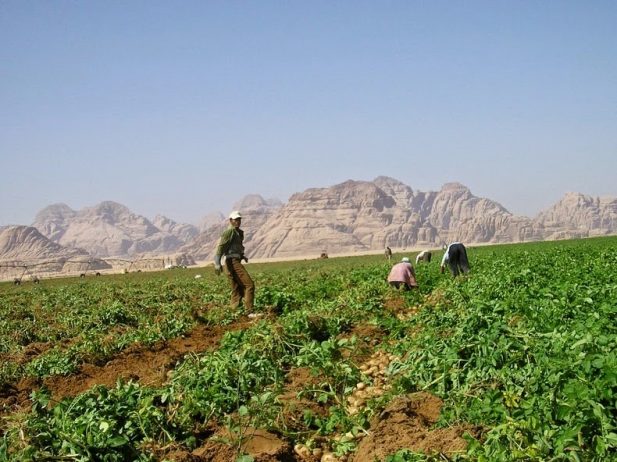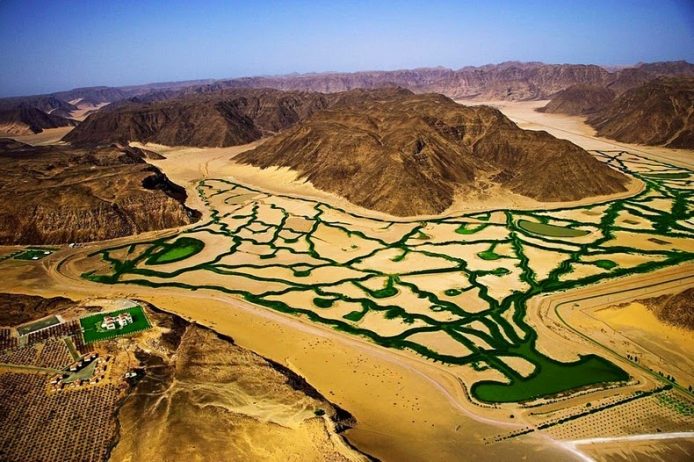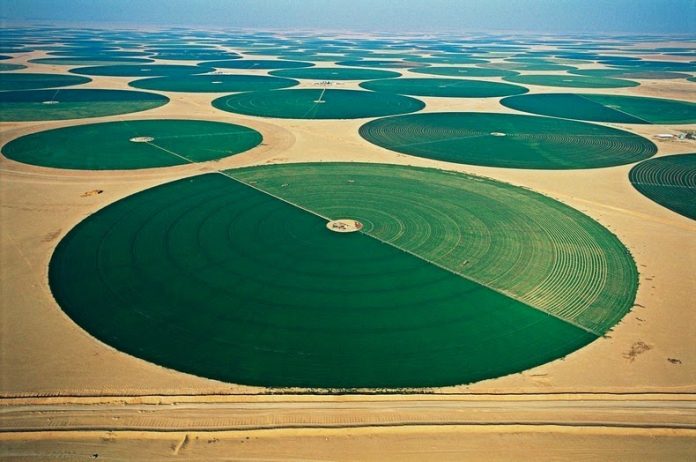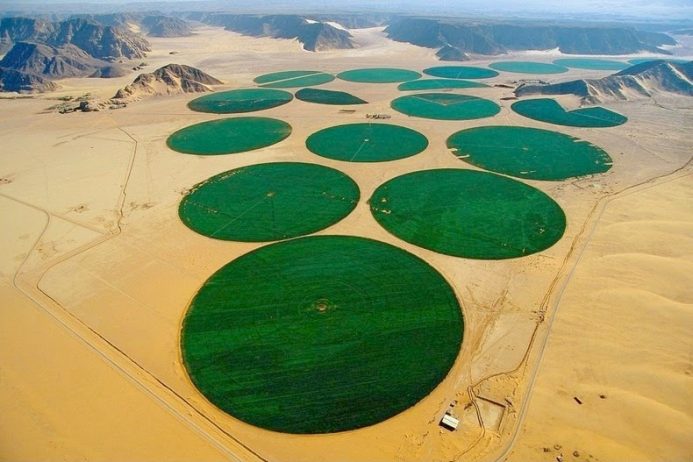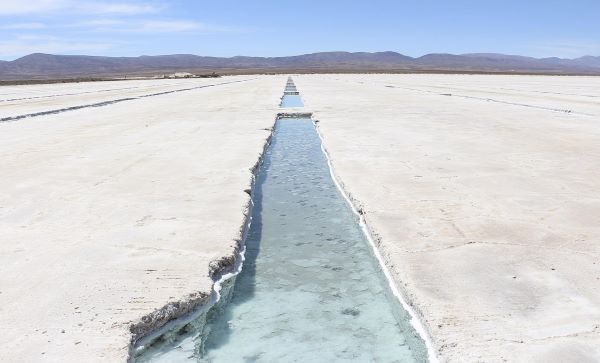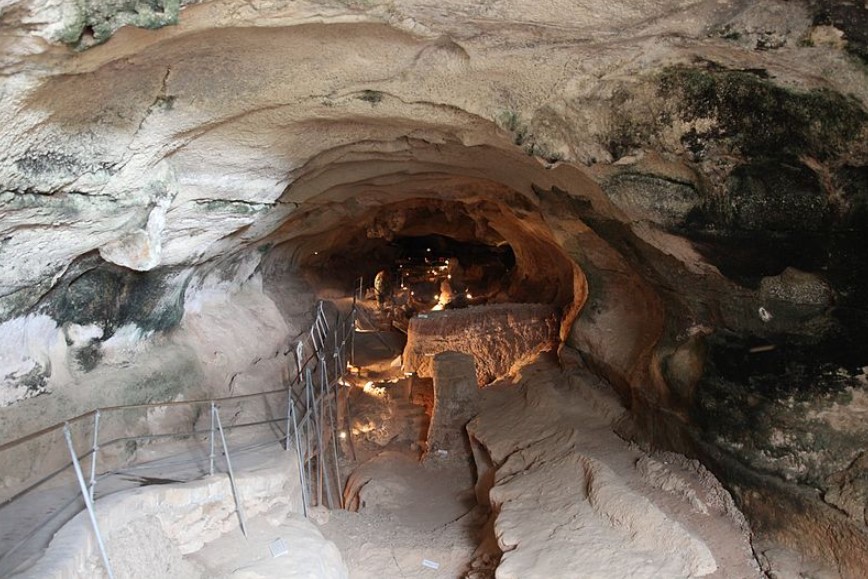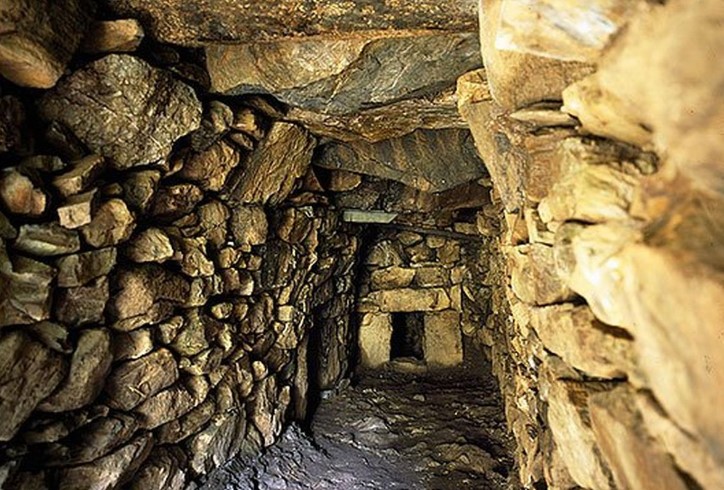The beautiful valley of Wadi Rum “Also called Valley of Moon” is located in Southern Jordan, very close to the border of Saudi Arabia. The valley of Wadi Rum contains mountains of granite and sandstone that rise next to valleys filled with red sand. A number of narrow gorges, natural arches, towering cliffs, ramps, massive landslides, and caverns lie scattered across an area of 720 square kilometers.
The land is actually naturally arid, due to receiving little annual precipitation and supporting only sparse vegetation. It’s amazing that anything at all can grow on the sun-baked earth, yet the desert regions of Israel and Jordan have for years been the subject of plentiful agricultural projects. Recently, Bedouins living in the Wadi Rum region have become involved in exclusive agricultural projects that are the foundation to becoming successful.
The Wadi Rum desert happens to be the site of Jordan’s largest mixed farm & Rum Farm. Therefore, Rum was established in 1986, in the middle of the Wadi Rum desert comprising 2,000 hectares of land. However, it seems like a strange choice of location, but it begins to make sense when you learn that under the Wadi Rum desert and stretching under the Border Mountains and well into Saudi Arabia, is a large aquifer. In fact, the water supply of desert nations is dependent on this single water source.
Rum Farm actually specializes in the cultivation of open-field vegetable products, such as grains and forage, cabbage, eggplants, figs, pomegranates, potatoes, squash, tomatoes, and several other vegetables. The crops grown there by Rum Farm Organics are being grown by using distinctive irrigation techniques which were used by ancient peoples of Egyptians and Nabateans. Water is well drawn from the subterranean aquifer, 30 to 400 meters deep, which is irrigated a huge area of 78 hectares of circular fields, by using a pivoting ramp with watering nozzles.
Special plastic “poly tunnels” are also used to support conserving water, which can deal with scorching desert temperatures. The company’s methods are so effective that is produces a large part of Jordan’s food supply, before being trucked north hundreds of kilometers via the desert to the capital of Amman and other locations.

